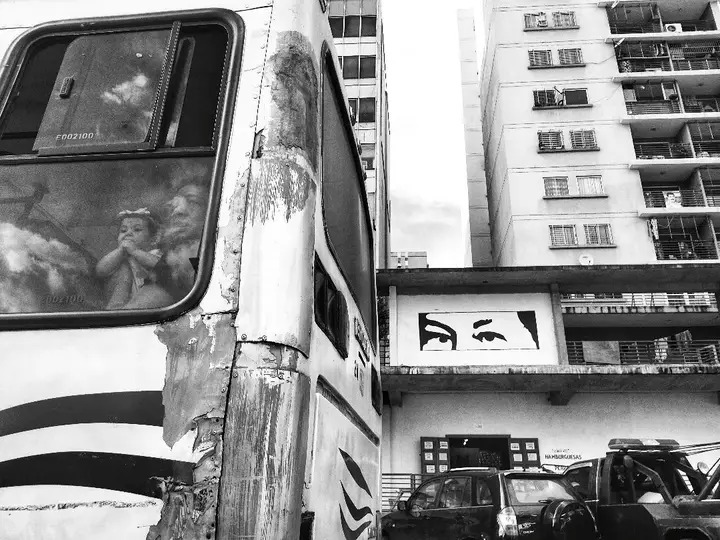
There are moments when the city throws an image in your face that refuses to dissolve. A man collapsed on a staircase, his shoes torn apart, his head tilted as if even gravity has grown tired of him. Right above him the mannequins stand, plastic thighs glowing with fabricated youth. They are not alive, but they stand straighter than him, and that is enough to feel like an insult. Caracas has no mercy for the living. It prefers its fakes neat, its exhausted invisible, its tragedies disguised as scenery. Nobody stops to help, nobody stares too long, because this is how you survive here, by pretending the collapse of others is not your future.
Shuttered storefronts are the new billboards. Metal doors pulled down, covered in dust and graffiti that speaks louder than news anchors. No more dead someone scrawled in black paint, probably late at night, probably in a hurry. The phrase is both a demand and a prophecy, but like everything else here it will be ignored until rain washes it away. We pass these walls every day and still they vanish from memory. Tragedy has become wallpaper, and we have trained ourselves not to read it. To live in Caracas is to step over messages like these without flinching, to normalize the begging of a city that keeps announcing its exhaustion.

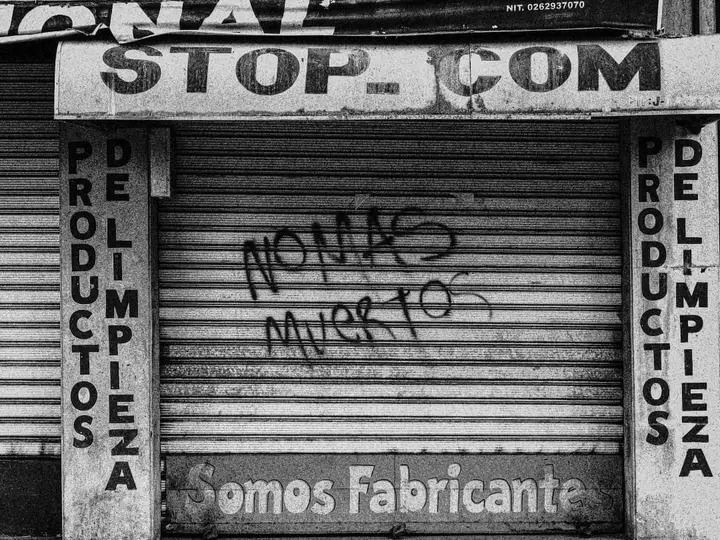
On the bus I caught another frame, one that has stayed with me longer than I expected. A little girl pressing her face to the window, hands flat against the dirty glass, next to the silhouette of her grandfather. She is too young to understand the city outside, too innocent to know how much rust and decay she is traveling through. He is too old to be surprised by it anymore. Their reflection mixes with the clouds outside, as if the sky wanted to console them, and still the truth is there, in the peeling paint of the bus and the eyes painted on the wall across the street. Those eyes looked back at me as if to remind me that hope is nothing but a reflection, fragile and temporary.
Life here does not feel like life, it feels like resistance. People walk past one another without a glance, no greetings, no good mornings, no small acts of recognition. Suspicion has replaced kindness, indifference has replaced community. We exist side by side but isolated, like avatars running through the same level of a game, colliding without connecting. The saddest part is not the violence or the shortages but the erosion of gestures, the loss of those small things that once made us human. I take photos because I refuse to accept that this silence is normal. Each frame is a reminder that even if nobody speaks, the city is still shouting.
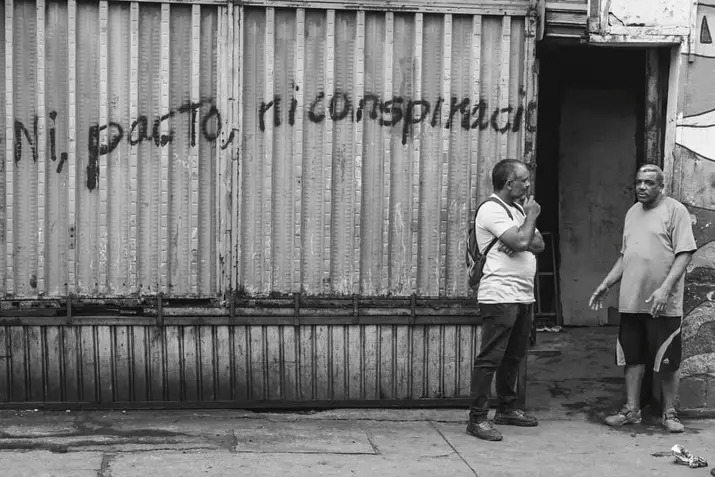
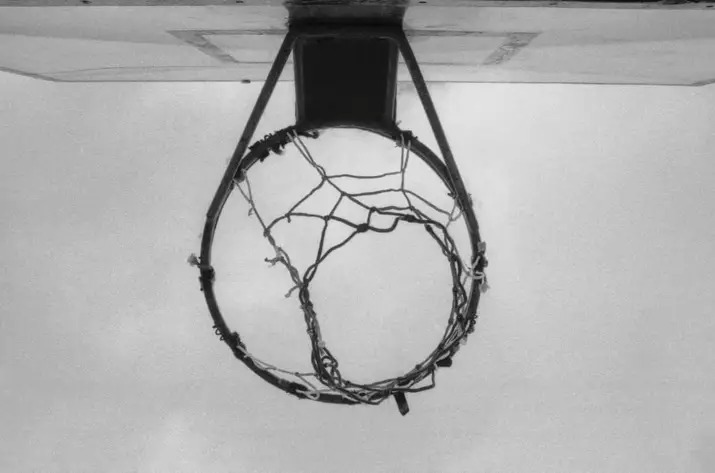
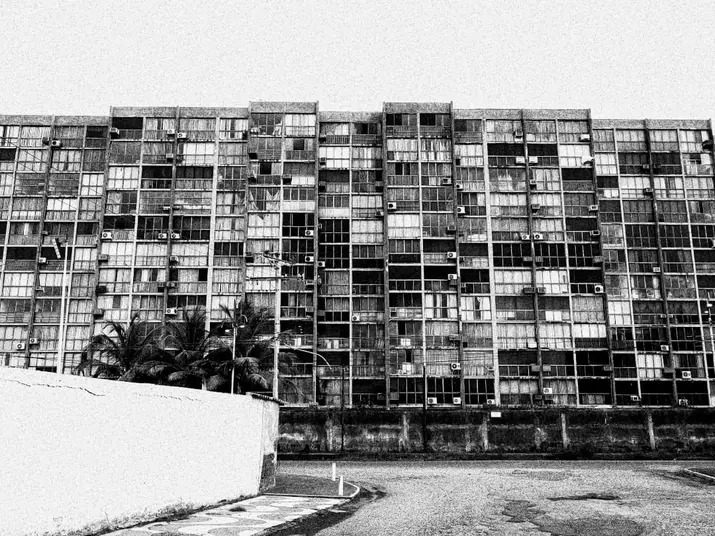
My camera is not decoration. It is a witness that refuses to look away. I cannot alter this chaos, I cannot mend the wounds, but I can insist that they are seen. Black and white forces the truth out, strips the comfort away, and shows the city as it is, raw and wounded and tired. These are not just images. They are evidence of what ordinary people endure every single day, evidence of how a society collapses in plain sight while pretending to keep going. If my photos unsettle you, then they have done what they needed to do. Because the only real failure would be to take them and feel nothing at all.
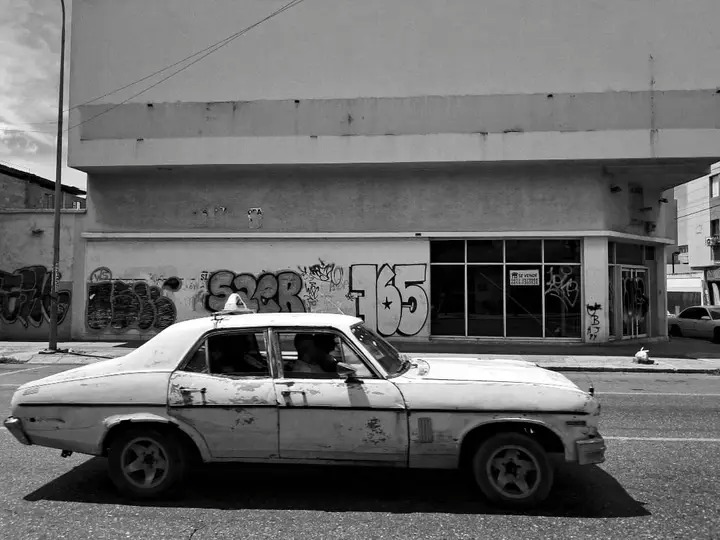
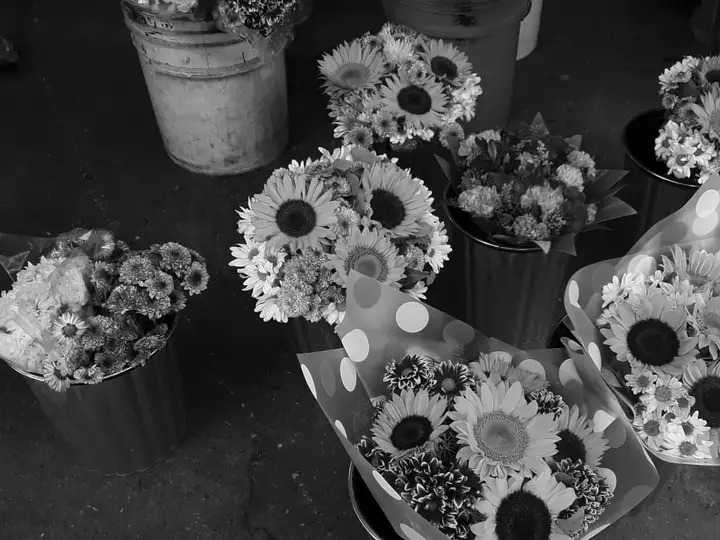
All photographs and content used in this post are my own. Therefore, they have been used under my permission and are my property.















